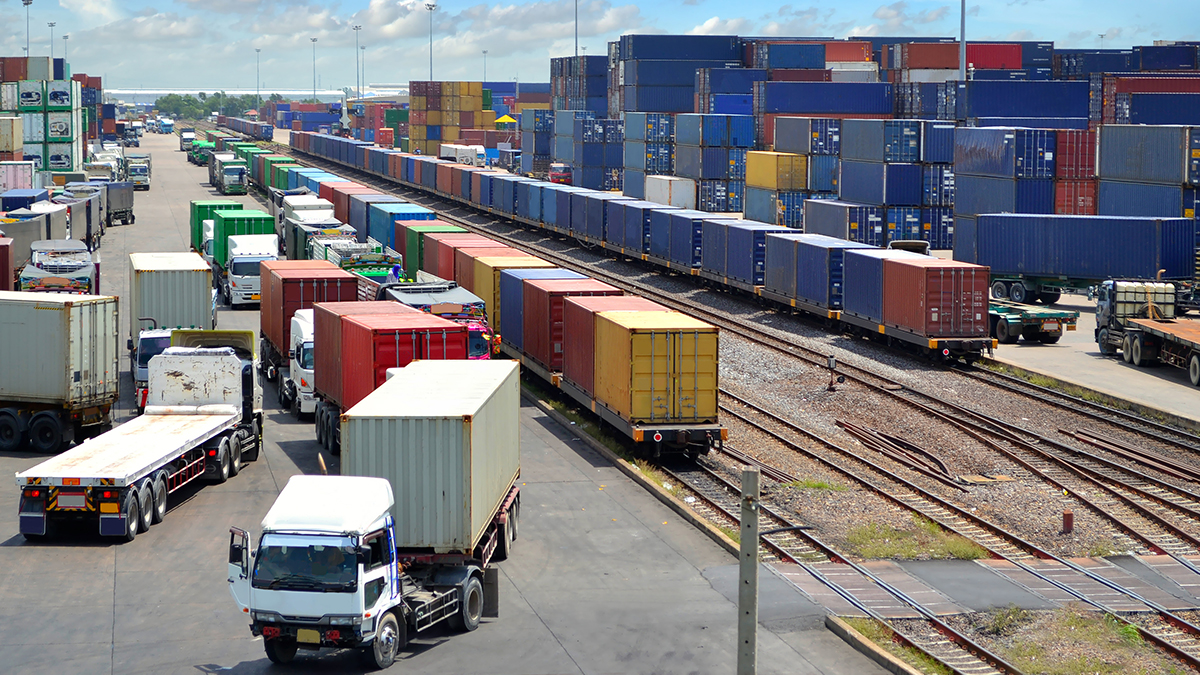Throughout the year, UNCTAD’s online trade facilitation courses helped officials from 27 countries gain knowledge and skills needed to implement World Trade Organization mandates.

Trade keeps the world's goods and services moving. © Furuoda
The COVID-19 pandemic did a lot to highlight for everyone the critical role trade plays in our daily lives.
Empty store shelves and late or undelivered packages led many people to wonder for the first time how goods and services reached them – and especially what stopped or delayed delivery.
And, of course, they wondered how the situation could be improved.
This is not a new topic in the trade world. The simplification, modernization and harmonization of export and import processes is called trade facilitation, and it’s the subject of global agreements, research, conferences and discussions.
“But for the first time, trade facilitation was on the minds of many people not working in the world of global commerce,” said Shamika Sirimanne, UNCTAD ¨technology and logistics director.
It takes a committee
Since the World Trade Organization (WTO) concluded the landmark Trade Facilitation Agreement (TFA) in 2013, which entered into force in February 2017, trade bodies, ports, customs organizations and governments have been working to expedite the movement, release and clearance of goods, including those in transit.
Among these are National Trade Facilitation Committees (NTFC), special structures designed to support national efforts to implement trade facilitation reforms and align with the WTO’s TFA.
In many developing countries, especially in Africa, there’s an implementation gap that UNCTAD is working to solve.
An UNCTAD survey of 130 NTFCs shows that 39% of the committees lack awareness of their importance and understanding of trade facilitation concepts.
“This is a major challenge to the sustainability of their committees,” said Mr. Hansen.
To address this challenge during the pandemic, UNCTAD launched its Trade Facilitation e-Learning Platform in early 2021, thanks to financial support from the United Kingdom.
The platform, available in English, French, Portuguese and Spanish, has provided a safe and effective alternative to the classroom, offering a convenient way for busy professionals from public and private sectors to gain knowledge on trade facilitation matters.
Ten months after its launch, more than 1,000 decision makers have used the platform to hone their trade facilitation knowledge and skills.
An enabling platform
Throughout 2021, participants from 27 countries benefited from the 10 self-paced modules available on the platform. They include 150 videos, 60 quizzes, handouts and further reading materials to support participants in their e-learning journey. In addition, a total of 195 webinars were organized, close to one every working day since the launch of the platform.
At these virtual events, international and national experts shared critical key concepts and adapted them to each country’s reality. This allowed trade facilitation stakeholders to dive deeper into the meaning, application and technicalities of each key concept, and to fully understand them in relation to one another.
“This got rid of and solved any doubts they might have had around trade facilitation,” added Mr. Hansen.
A total of 659 participants – almost equal numbers of women and men – graduated from the programme.
“The course will help me to account for and answer relevant questions from our stakeholders and make the dream of streamlined, efficient and effective trade practices in line with the WTO Trade Facilitation Agreement a reality,” said Patricia Joubert, dean of commerce at the University of Swaziland, Eswatini.
“Trade processes are evolving at a dynamic pace and require regular innovation and improvements, or we will not reap maximum benefits of trade with our trading partners,” she added.
According to the final evaluations, 95% of participants said the course helped them significantly improve their knowledge on trade facilitation. Similarly, 94% said they now feel more comfortable to apply trade facilitation principles and concepts in their daily jobs and 91% felt in a better position to fulfil their roles as NTFC members.
Participants wrote articles on the experience and learning points, some of which have been published as part of UNCTAD’s Trade Facilitation e-Learning Blog series, which helps share experiences and best practices among NTFC members, enhancing South-South cooperation.
Through the Trade Facilitation Platform’s community feature, committee members can also connect and interact.

New course, global forum ahead in 2022
“The success of National Trade Facilitation Committees depends not only on the skills of its members but also on its Secretariat,” Mr. Hansen said. “So, in 2022, UNCTAD is planning to launch a new series of hands-on courses aimed at coaching the committee members.”
Effective communication, resource mobilization and the drafting of trade facilitation project proposals are among the topics that will be delivered next year.
UNCTAD is also organizing the 2022 Global Forum for National Trade Facilitation Committees, set to take place online from 1 to 4 February 2022.
The virtual event will provide a moment for key stakeholders to learn about and discuss the latest trends regarding implementation of trade facilitation reforms.
It will offer insight on good trade facilitation implementation practices and planning, organization, automation and digitalization can help accelerate the necessary reforms, in particular through the COVID-19 recovery era.
Explore the year in review


